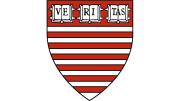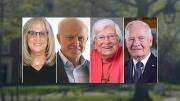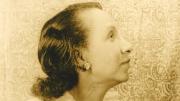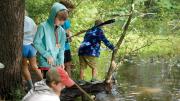The highly contested public debate over the Harvard Kennedy School’s decision not to appoint a prominent human-rights leader to a fellowship last summer—publicized in recent weeks—has, today, been followed by a reversal of that decision.
Last spring, the Carr Center for Human Rights at the Harvard Kennedy School (HKS) discussed with Kenneth Roth, retiring executive director of Human Rights Watch, the possibility of a fellowship in residence. The nomination was forwarded to Douglas Elmendorf, the school’s dean. Following a conversation with Roth, the dean declined to make the fellowship appointment.
And there the matter lay, unmarked by the wider public, until the early-January publication of “Why the Godfather of Human Rights Is Not Welcome at Harvard,” a long report in The Nation, by journalist Michael Massing, recounting the nomination, the fact that the fellowship did not proceed to the formal offer of an appointment—and detailing an argument, from Roth and Massing’s extensive reporting, that the reason it did not proceed was because of donor influence and HKS involvement with Israel whose government has been severely critiqued by Human Rights Watch for its treatment of Palestinians.
That touched off furious debate, with Roth himself writing op-eds, including one published this morning in the Boston Globe under the headline, “Harvard needs to stand with its principles, not with Israel—or its donors.”On January 10, Human Rights Watch posted an open letter to President Lawrence S. Bacow, Elmendorf, and President-elect Claudine Gay criticizing “the decision by Dean Douglas Elmendorf of the Harvard Kennedy School to block the appointment ,” and claiming, “According to news reports, which neither Dean Elmendorf nor the school’s spokesperson has denied, Dean Elmendorf vetoed the appointment because of Mr. Roth’s and Human Rights Watch’s criticism of human rights violations by the government of Israel.” Some petitioners called for Elmendorf’s removal as dean.
The debate was fueled by sharp arguments over Israel, Palestinian rights, and the supposed welcoming or suppression of differing views and open debate on campus. Throughout, Elmendorf and HKS, as is customary, declined further comment on a personnel decision, merely stating, through the school’s spokesman, that “Dean Douglas Elmendorf decided not to make this fellowship appointment, as he sometimes decides not to make other proposed academic appointments, based on an evaluation of the candidate’s potential contributions to the Kennedy School. We have internal procedures in place to consider nominations for fellowships and other appointments, and we do not discuss our deliberations about individuals who may be under consideration.”
For what it is worth, the school’s official policy on “Transparent Engagement and Funding” explicitly governs its relationship to outside parties, including funders. Relevant passages include:
HKS’s research and teaching are substantially enhanced by financial contributions from generous alumni and friends who believe in our mission. Without such contributions, the scope and scale of our educational activities would be much more limited than it is today, and we are grateful to our alumni and friends for their support.
At the same time, we recognize that these forms of engagement can raise concerns about the independence and objectivity of our work. Some observers may wonder whether our interactions with policymakers, governments, nonprofit leaders, and private firms might distort our assessments of their activities. And some observers may wonder whether our receipt of financial contributions from certain people and entities could distort our analysis. The reputations of individual faculty members, of HKS, and of Harvard University can be damaged by actual or perceived conflicts of interest and by implications that our work is not motivated by the pursuit of knowledge. Moreover, our ability to have a positive impact on public policy and leadership depends crucially on the credibility of our research and teaching.
To achieve the engagement that is fundamental to our work while maintaining public trust in our independence and objectivity, Harvard Kennedy School has adopted an approach of “transparent engagement.” This approach recognizes the value of our energetic involvement in the world while taking crucial steps to maintain public trust: We adopt internal policies that protect the core academic value of independence, and we are open about the people and organizations with whom we are working and from whom we are receiving support. This approach of transparent engagement (which was formally adopted in 2012) is manifested in a number of ways.
After discussing how sponsored research grants and gifts are reviewed, the policy states:
It bears emphasis that HKS’s funders do not control the way we carry out our work. For all of our activities conducted using external funding, we protect our academic integrity and independence by maintaining full intellectual control: HKS faculty and staff make the decisions about research methodologies and policy findings, about the content of our courses, and about whom we accept into our community as students, faculty, staff, and visitors. No funder is allowed to interfere with those decisions, and all of our funders are aware of that point. We work to ensure that public communications about gifts and grants are clear that HKS is the intellectual driver of the activities.
That said, in a statement to the community this morning, Elmendorf announced:
During the past few weeks, significant concerns have been raised about my decision not to appoint Ken Roth as a Fellow at Harvard Kennedy School for this academic year.
I have not issued a statement on this decision because at the Kennedy School, as in virtually every organization, certain aspects of personnel matters should not be publicly discussed. But given the significant interest in this matter at the School, and in light of discussions I have had with faculty members in recent days, I want to outline aspects of the considerations that went into my decision and explain how I think we should move forward.
First let me emphasize that my decision was not influenced by donors. Donors do not affect our consideration of academic matters. My decision also was not made to limit debate at the Kennedy School about human rights in any country. As a community we are steadfastly committed to free inquiry and including a wide range of views on public policy, and the appointment of a Fellow is never an endorsement of the views of that individual nor a refutation of other views. My decision on Mr. Roth last summer was based on my evaluation of his potential contributions to the School.
In recent days I have spent a great deal of time consulting with faculty members, hearing their views, and discussing a path forward on this specific appointment and on broader issues around the appointment of Fellows at the Kennedy School.
On the broader issues, we need clearer and better processes that draw more on the insights of the Kennedy School faculty as a whole. Accordingly, I will ask a faculty committee to develop a faculty-driven process for evaluating Fellow appointments—a process that I expect will bring greater rigor and wider consultation and that will be grounded in our deep commitment to excellence and to multiple informed perspectives.
In the case of Mr. Roth, I now believe that I made an error in my decision not to appoint him as a Fellow at our Carr Center for Human Rights. I am sorry that the decision inadvertently cast doubt on the mission of the School and our commitment to open debate in ways I had not intended and do not believe to be true. The broader faculty input I have now sought and received has persuaded me that my decision was not the best one for the School. I have spoken now with a colleague at the Carr Center, and we will extend an offer to Mr. Roth to serve as a Fellow. I hope that our community will be able to benefit from his deep experience in a wide range of human rights issues.
Finally, I want to underscore my commitment to the Kennedy School’s important work to advance human rights around the world. I am proud of the work of all my colleagues to improve public policy and leadership.
Will this outcome end the controversy over the initial nomination for a fellowship and Elmendorf’s decision not to make the appointment? Probably not. Whatever went into his decision last summer—which could have been determined by his view of Roth’s proposed fellowship and role in the community, or other HKS commitments and fellowships and academic priorities—will not be fully known, nor would such reasons likely be accepted by partisans on any side of the issue raised by the controversy.
The whole matter does suggest the need for a better process for making fellowship appointments, which Elmendorf is putting into place, and perhaps a more measured debate within the community and beyond when such differences arise. In issues concerning HKS—which lives at the center of the political debates that divide citizens around the country and around the world, on matters ranging from domestic budgets and contested elections to brutal wars—that may be wishful thinking in early 2023.









